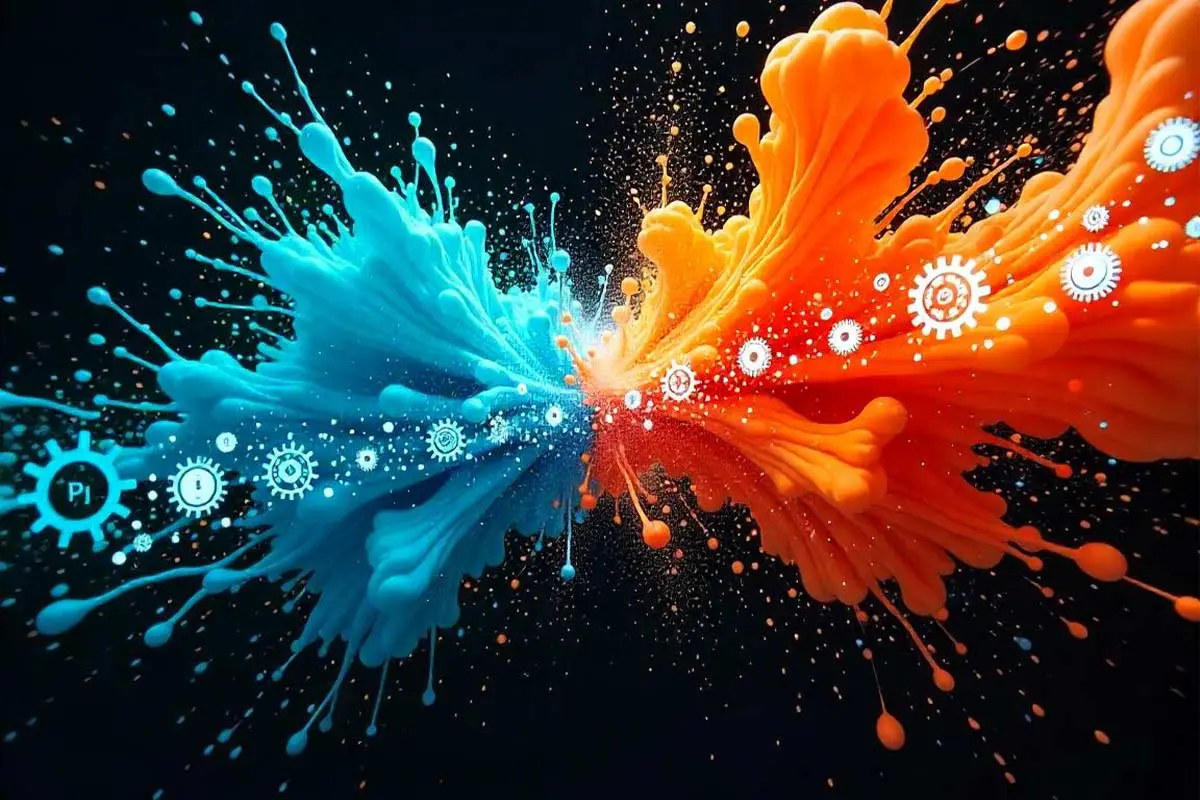
Author: Anne Trompeter, Partner; Strategic Account Development, Real-Time Marketing
Remember when CAD revolutionized booth layout design? When we first started using event apps and thought we had reached peak technology?
Just like digital project management tools changed the game in the ’90s and virtual events became our pandemic lifeline, artificial intelligence is shaking up our industry. Let’s be clear: AI is not about robots taking over our jobs. (It would be nice, though, if it could sort through the deluge of emails from panicked customers at 4 a.m., right?)
Artificial intelligence offers a unique opportunity to create harmony between the artistic and logistical aspects of trade shows and events, boosting creativity through increased efficiency and keeping our sanity intact.
Enhance creativity with artificial intelligence
When we think about artificial intelligence in the event creative process, it’s natural to ask: “How does technology enhance creativity? Aren’t the ideas of technology and automation in direct conflict with imagination and original ideas?”
Let’s flip the script and think of AI as tools like Photoshop and 3D modeling software that can enhance and amplify our creative potential – whether it’s generating mood boards or rapid prototypes, or making suggestions for a more personalized attendee experience .
Here are a few ways to use artificial intelligence to enhance creativity:
1. Visual concept generation
Generating and iterating visual concepts quickly often takes time, especially during project launch.
This is where using AI-powered tools like Midjourney and DALL-E can be a game changer. For example, enter prompts like “future VIP event with organic elements” or “retro carnival-themed team building event” to generate a visualization, design, or event layout in minutes instead of hours or days.
AI can speed up the initial ideation phase and facilitate a “temperature check” at the beginning of a project to enable rapid transformation if needed.
2. Personalization at scale
Artificial intelligence also opens up new ways to create tailor-made and memorable moments for attendees.
For example, AI algorithms can streamline the process of analyzing attendee data such as past event participation, preferences, and even social media activity to come up with personalized agendas, networking ideas, or content recommendations.
Imagine using AI to generate a personalized welcome screen for each event attendee, with visuals that resonate with their interests or hobbies. Or consider an AI-powered photo booth that not only takes photos but also generates customized artwork based on attendees’ attire, mood, or responses to survey questions.
3. Interactive activity experience
Machine learning algorithms are also finally enabling the personalized interactive experiences that event designers have longed for but have not yet been able to achieve cost-effectively or at scale.
For example, imagine a digital wall background that changes color or replaces images as attendees interact with it throughout the event. Or what about AI-powered campaign chatbots that do more than just customer service? Instead, they engage attendees in creative ways, such as generating personalized event giveaways like custom haiku about their experience.
These AI-driven scenarios demonstrate several ways to increase the creativity of your campaigns to deliver those unexpected “wow and delight” moments we all strive to create.
Artificial intelligence improves operational efficiency
As the saying goes, “the devil is in the details”—especially when it comes to the countless to-do items throughout your event planning.
Artificial intelligence can help us move beyond traditional project management and tracking tools to improve operational efficiency, such as:
1. Timetable and rework schedule
Creating, modifying, and keeping event schedules up-to-date is often a never-ending process. AI excels at generating detailed schedules and checklists based on specific event details, keeping event logistics on track.
Enter key parameters such as event type, exhibit set-up date, and venue/location, and AI can instantly generate a detailed schedule that includes everything from vendor loading times to speaker rehearsals.
AI-generated timelines can also change in real time as changes occur. For example, if a shipment is delayed, AI can automatically adjust project timelines and alert relevant team members to keep everyone up to date.
2. Automate routine tasks
Instead of spending hours manually contacting suppliers and reviewing lengthy documents, AI sifts through your requirements and suggests supplier matches and comparison contacts, allowing teams to focus on production planning and decisions that require human oversight. .
AI can also take the hassle out of planning employee on-site schedules, providing the best recommendations for peak traffic times and break times. Just like timelines, AI can automatically adjust schedules in real time based on foot traffic data or employee absences due to last-minute conflicts.
Artificial intelligence is the next tool in a long history of creative and technological innovation that will enhance the events industry. However, power is not just about ability; When we combine the efficiency of artificial intelligence with human creativity and insight, we create harmony.
With over 30 years experience in the events sector, Anne brings sound strategy, creative vision and innovative solutions to every project. She puts a lot of effort into it and believes that the event experience really matters. Anne’s expertise spans various verticals including technology, finance, education and healthcare. Committed to driving creativity, efficiency and excellence, she consistently delivers results-driven, award-winning work for clients and brands.











Leave a Reply Cancel reply
You must be logged in to post a comment.